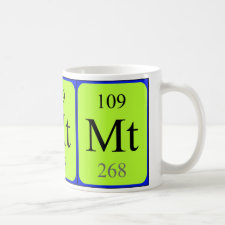
Authors: Sadegh N, Asfaram A, Javadian H, Haddadi H, Sharifpour E
Article Title: Ultrasound-assisted solid phase microextraction-HPLC method based on Fe3O4@SiO2-NH2-molecularly imprinted polymer magnetic nano-sorbent for rapid and efficient extraction of harmaline from Peganum harmala extract.
Publication date: 2021
Journal: Journal of Chromatography B
Volume: 1171
Article Number: 122640.
DOI: 10.1016/j.jchromb.2021.122640
Alternative URL: https://www.sciencedirect.com/science/article/pii/S1570023221001203
Abstract: In the present study, a magnetic molecularly imprinted polymer (MMIP) was synthesized for the extraction of harmaline from Peganum harmala by dispersive solid-phase microextraction (DSPME). The MMIP for selective and intelligent extraction of harmaline with excellent functionality and high selectivity was synthesized using the sol-gel method with functionalized superparamagnetic core-shell nanoparticles, ethylene glycol dimethacrylate (EDMA) as a cross-linker, methacrylic acid (MAA) as a functional monomer, and 2,2-azobisisobutyronitrile (AIBN) as a porogen. To study the properties and morphology of the coated polymer, FT-IR spectroscopy, FESEM, TEM images, and VSM were used. The DSPME-HPLC-UV equipment was used to quantify and analyze the data obtained from harmaline extraction. In this research, the efficiency of the synthesized polymer in harmaline extraction was modeled and optimized using the response surface methodology based on central composite design (RSM-CCD). In addition, for modeling the isotherm of harmaline sorption by the MMIP, Langmuir and Freundlich isotherm equations were used. The obtained results showed that the extraction of harmaline with the MMIP was well described with Freundlich isotherm. The results of the validation of the method showed that the measurement of harmaline in the concentration range of 1.0-4000 ng mL-1 followed a linear relationship (R2 = 9986.0). Moreover, the accuracy or repeatability index (% RSD) was determined to be < 10, and the LOQ and LOD values were 0.526 and 0.158 ng mL-1, respectively. The results of this study showed that the DSPME technique by using the synthesized MMIP as an effective sorbent with high efficiency and capacity could be utilized for pre-concentration and extraction of harmaline from real and complex samples
Template and target information: harmaline
Author keywords: Magnetic molecularly imprinted polymer (MMIP), Harmaline, solid-phase microextraction, DSPME-HPLC-UV



Join the Society for Molecular Imprinting

New items RSS feed
Sign-up for e-mail updates:
Choose between receiving an occasional newsletter or more frequent e-mail alerts.
Click here to go to the sign-up page.
Is your name elemental or peptidic? Enter your name and find out by clicking either of the buttons below!
Other products you may like:
 MIPdatabase
MIPdatabase









